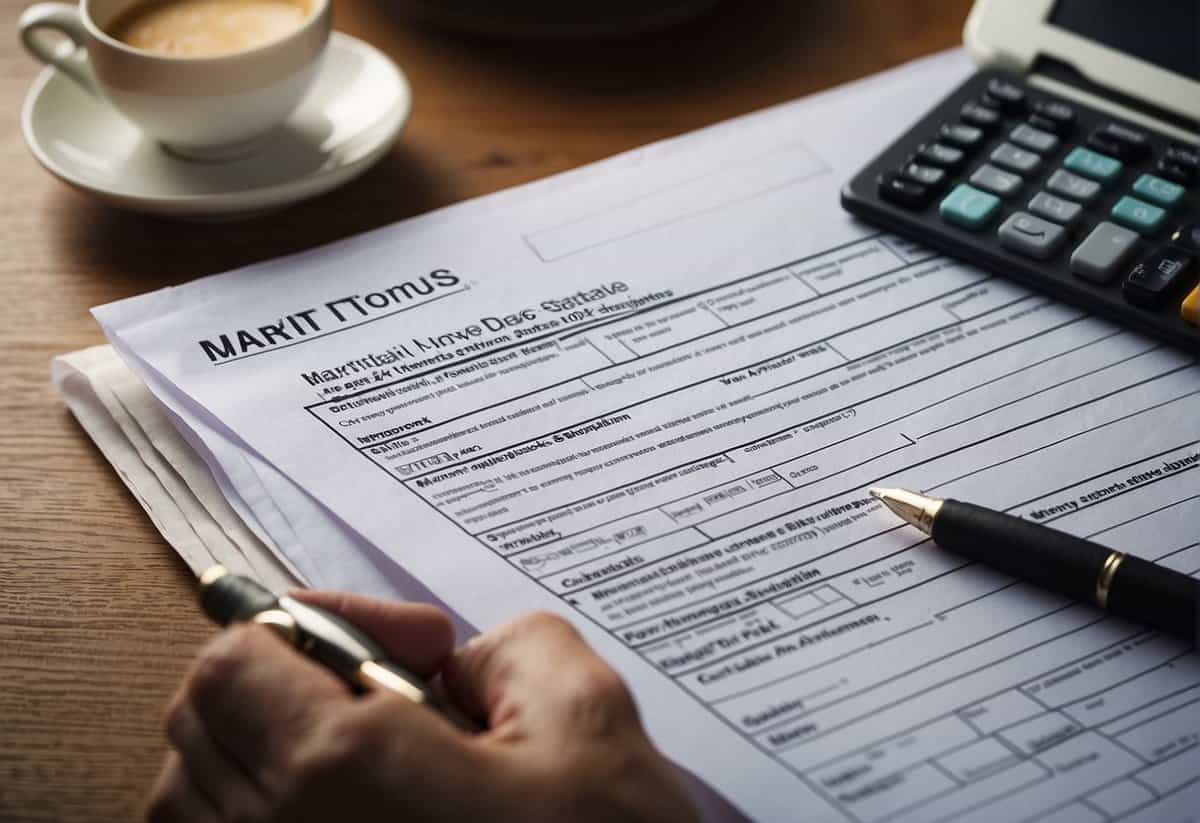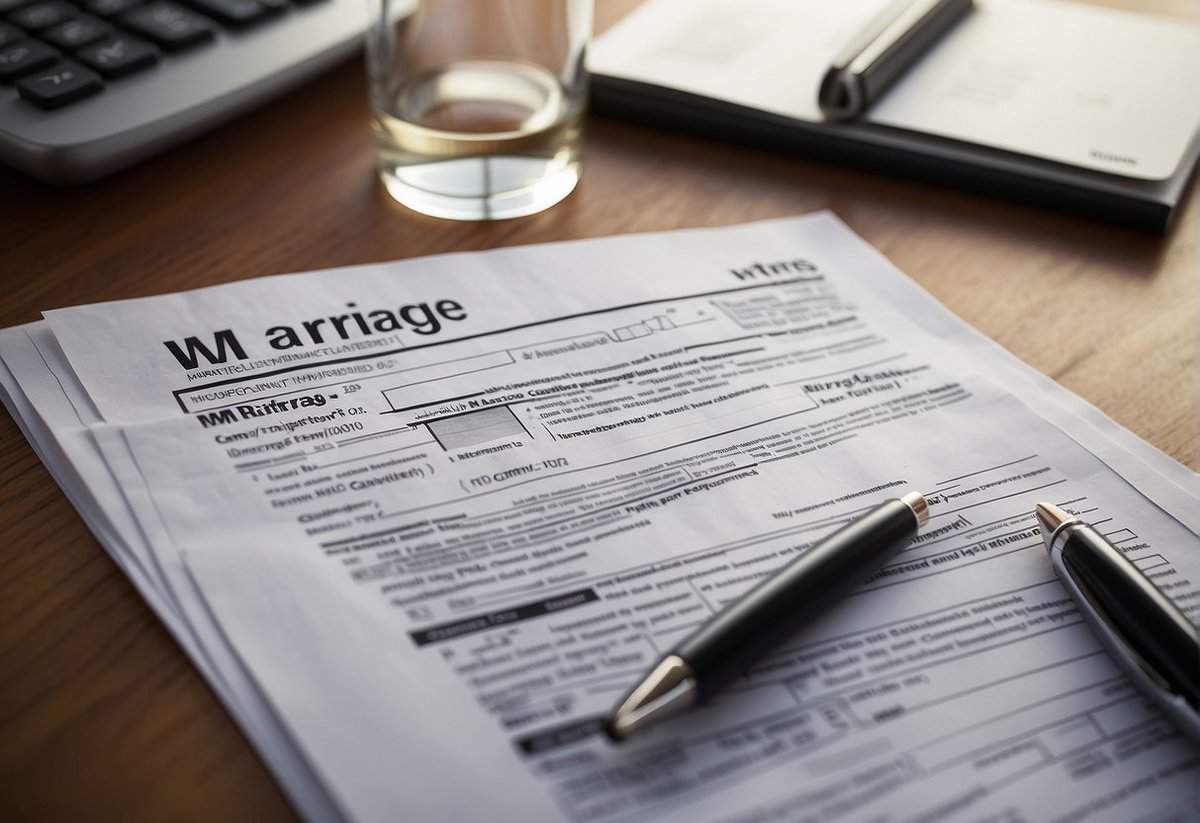Do I Have to Tell HMRC When I Get Married? Understanding Your Tax Obligations
When you enter into marriage, it may feel like a strictly personal and emotional commitment. However, it also carries with it certain legal and financial implications that you can’t overlook. A key agency you’ll need to keep informed is Her Majesty’s Revenue and Customs (HMRC). Telling HMRC when you get married is an important step because it impacts how you’re taxed. Marriage can unlock certain tax benefits, and being proactive in updating your marital status with HMRC ensures that you and your partner take full advantage of potential tax reliefs.

As marriage changes the way your finances are treated under the law, notifying HMRC is not just a legal requirement, but also a practical measure to manage your tax affairs efficiently. You are obliged to inform HMRC if there’s a change in your life that affects your tax situation, such as getting married or entering into a civil partnership. This is because your marital status can influence your tax code and the potential benefits you’re eligible for, such as the Marriage Allowance, which allows lower earners to transfer a portion of their personal tax-free allowance to their higher earning partner.
Key Takeaways
- Notifying HMRC about your marriage alters tax management and can lead to benefits.
- Legal requirements mandate updating your marital status with HMRC.
- Timely communication with HMRC may provide financial advantages through various allowances and reliefs.
Legal Implications of Marriage for Tax Purposes

When you get married or enter into a civil partnership, it can affect your income tax. Understanding the benefits, such as Marriage Allowance, and your obligations, like updating personal details, is essential.
Understanding Married Couple’s Allowance
If you’re married or in a civil partnership, you may be eligible for the Married Couple’s Allowance. This can reduce your income tax by between £345 and £891.50 each year, depending on factors such as your income. To be eligible, one partner must be born before 6 April 1935. For younger couples, the Marriage Allowance might apply instead, allowing you to transfer £1,260 of your Personal Allowance to your partner, reducing their tax by up to £252 a year. You can find out more and apply directly through GOV.UK.
Changing Your Name and Informing HMRC
If you change your name after marriage or forming a civil partnership, you should inform HM Revenue and Customs (HMRC). It’s crucial because any mismatch in details can lead to issues in your tax records. To make this update, you can provide the necessary information to HMRC through their change of details page. This ensures that your income tax records, and any benefits you receive, such as the Marriage Allowance, continue without interruption.
Updating Personal Information with HMRC

When significant changes occur in your life, such as getting married, it’s important to inform HM Revenue and Customs (HMRC) to ensure that your personal details are current. This helps you to manage your taxes accurately and receive any potential benefits.
When and How to Update Your Details
When to Update: You should notify HMRC promptly if you change your name, address, or personal details following a marriage. This will affect how the government contacts you and manages your tax records.
How to Update: You can update your details with HMRC either through their online services or by using the official HMRC app. If it’s easier, you can also notify HMRC by writing to them directly.
- To change your name or address, visit the government website.
- If martial status is the detail that has changed, this can be updated on the same website.
- For those who are self-employed, changes must be reported on the HMRC section of the National Insurance website.
Remember, keeping your details up to date is crucial to stay compliant with tax regulations.
Documents and Records to Update
After you get married, certain documents and records require updating to reflect your new circumstance:
- Tax Records: Notify HMRC of your new personal details. Your tax code and communications will be updated accordingly.
- Business Records: If you’re self-employed or run a business, update your business records with your new name and address.
Documentation Required for HMRC:
- A marriage certificate could be required to prove the change of name.
- New address proof, such as a utility bill or rental agreement, if you have moved.
By keeping these records up to date, you help HMRC to process your information correctly, which can support smoother interactions with government services.
Financial Considerations and Benefits

When you tie the knot, your tax situation can change, affording you potential benefits and credits. It’s key to understand how these adjustments affect your finances.
Tax Credits and Child Benefit
If you’re claiming tax credits or child benefit, updating HMRC with your marriage status is necessary, as it can influence the amount you’re eligible to receive. For child tax credits, the income of you and your partner is assessed jointly, which means your combined income could affect your payments. If you have savings, the interest may count as income and could, therefore, impact the tax credits you receive.
Allowances and Rates for Couples
Upon marriage, you may be eligible for the Marriage Allowance, which can reduce your tax bill by allowing you to transfer a portion of your unused personal allowance to your spouse if they earn more than you. This is particularly advantageous if one of you has a lower taxable income or does not use all of their tax-free allowance. Also, remember to inform HMRC promptly, as changes can influence the rates and allowances applied to your situation.
If you need more detailed assistance, consider reaching out directly to the income tax helpline, where experts can offer guidance tailored to your new circumstances.
Frequently Asked Questions

When you tie the knot, notifying HMRC is important to ensure your tax records are up to date. This will help you to access tax benefits you may now be eligible for as a married individual.
How do I inform HMRC about my name change after marriage?
Notify HMRC of your new name by filling out the appropriate form on the government website or through your Personal Tax Account. It’s crucial to do this to ensure your tax code and personal details are current. Learn how to Tell HMRC about a change to your personal details.
What is the process for updating my Council Tax records after getting married?
You should inform your local council about your marriage so they can update your Council Tax account. Contact them directly, typically through their website or customer service line, providing proof of your marriage and any name changes if applicable.
Who should I notify about my marriage in the UK?
Alongside HMRC, you must alert the Department for Work and Pensions, DVLA, your bank, employer, and any other official records or services where your previous name or marital status is on file.
Is there a time limit on when I should change my name after getting married?
There is no legal time limit for changing your name after marriage. However, to maintain consistency across your legal documents and records, it’s advisable to do this as soon as possible.
What steps do I need to take to change my marital status with HMRC?
Changing your marital status with HMRC usually involves providing proof of your marriage. This ensures that you receive any applicable tax allowances for married couples, such as the Marriage Allowance.
How can I cancel my child tax credit after getting married in the UK?
To cancel or update your child tax credit, you need to contact HMRC directly. Changes in marital status could affect your tax credit eligibility, so inform them promptly.
